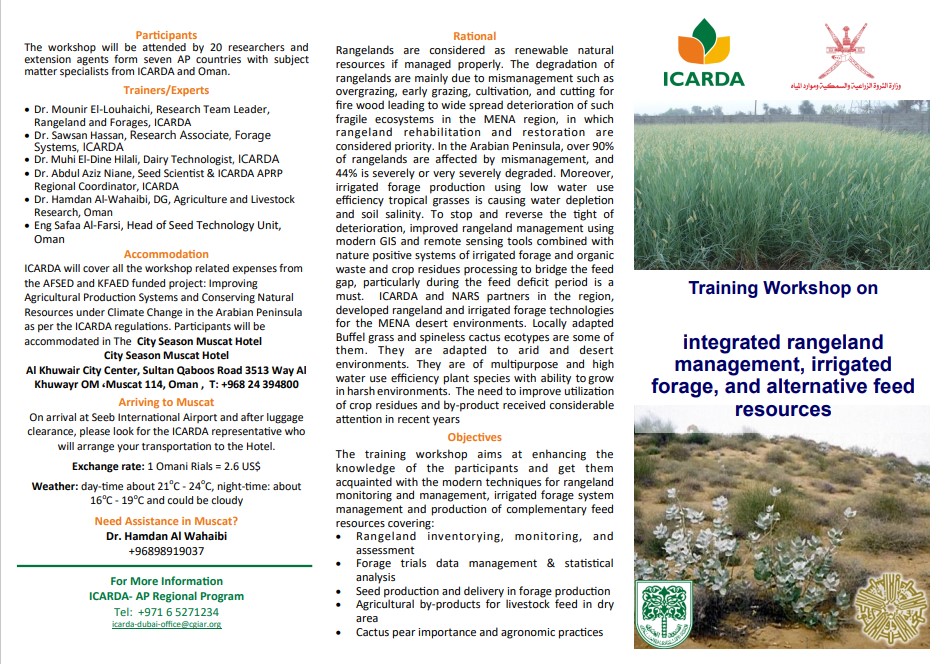Rangelands are considered as renewable natural
resources if managed properly. The degradation of
rangelands are mainly due to mismanagement such as
overgrazing, early grazing, cultivation, and cutting for
fire wood leading to wide spread deterioration of such
fragile ecosystems in the MENA region, in which
rangeland rehabilitation and restoration are
considered priority. In the Arabian Peninsula, over 90%
of rangelands are affected by mismanagement, and
44% is severely or very severely degraded. Moreover,
irrigated forage production using low water use
efficiency tropical grasses is causing water depletion
and soil salinity. To stop and reverse the tight of
deterioration, improved rangeland management using
modern GIS and remote sensing tools combined with
nature positive systems of irrigated forage and organic
waste and crop residues processing to bridge the feed
gap, particularly during the feed deficit period is a
must. ICARDA and NARS partners in the region,
developed rangeland and irrigated forage technologies
for the MENA desert environments. Locally adapted
Buffel grass and spineless cactus ecotypes are some of
them. They are adapted to arid and desert
environments. They are of multipurpose and high
water use efficiency plant species with ability to grow
in harsh environments. The need to improve utilization
of crop residues and by-product received considerable
attention in recent years

- Teacher: Betty Abrilian
- Teacher: Wael El-Gaaly
- Teacher: Sawsan Hassan
- Teacher: Muhi El-Dine Hilali
- Teacher: Arash Nejatian
- Teacher: Abdoul Aziz Niane
- Teacher: Masafumi Tamura
